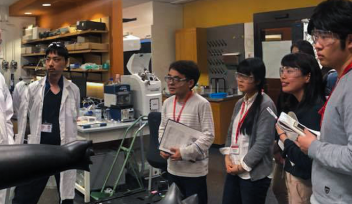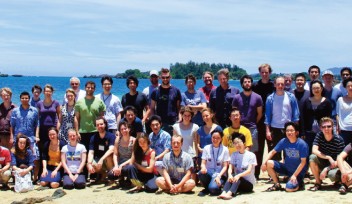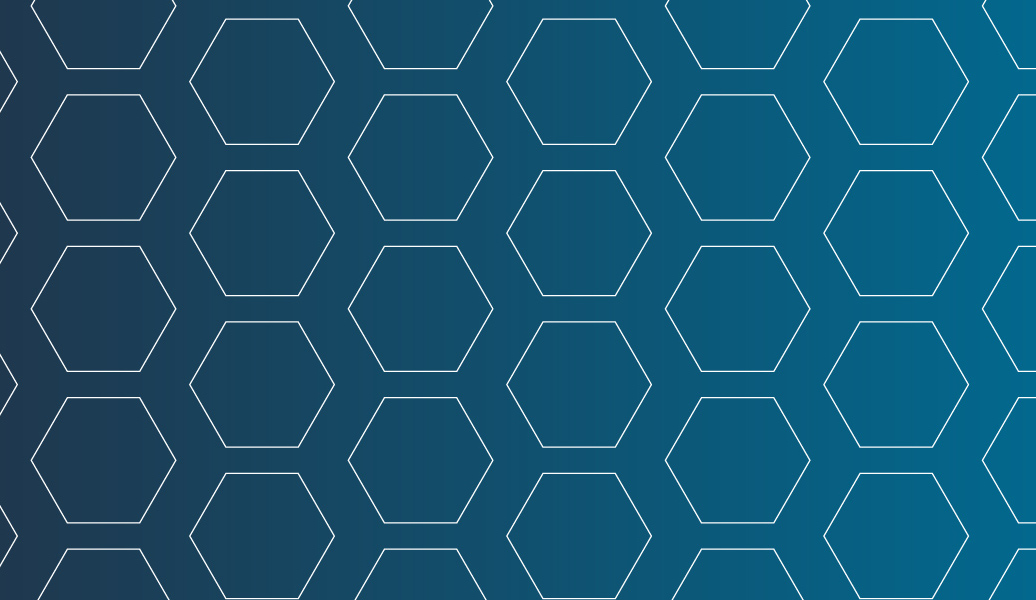Aspiring to become world-leading neuroscientists
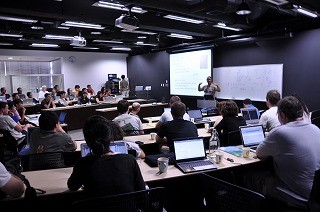
Dr. Klaus M. Stiefel (Principal Investigator, Theoretical and Experimental Neurobiology Unit) presents“Introduction to modeling morphologically detailed neurons”
The Okinawa Computational Neuroscience Course (OCNC) 2011, a three-week course on single neurons, networks, and behaviors led by Dr. Erik De Schutter (Principal Investigator, Computational Neuroscience Unit), started on June 13th at OIST Seaside House. Twenty-nine students and researchers from all over the world – only 17% of applicants – were selected by OIST scientists to come to Okinawa and learn advanced computational neuroscience from some of the leading experts in the field. The diverse mix of nationalities, backgrounds, and interests of the participants makes the course even more special and valuable for all involved.
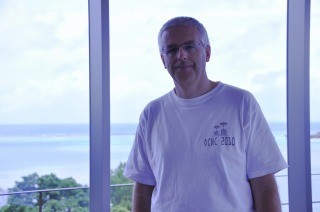
Dr. Erik De Schutter, co-organizer of OCNC2011
Dr. De Schutter reflected on the status of OCNC in his field, noting that “In the last few years, OCNC has become one of the most prestigious neuroscience courses in the world. This is because OIST has many excellent faculty and very good funding.” In this field of study, it is very important to study neurons from many different approaches. For these next three weeks, OCNC will provide students with a great opportunity to meet other scientists with different backgrounds, allowing them to learn from one another and broaden their knowledge of neuroscience.
David Peterson, who researches neurobiological movement disorder at the Salk Institute, explained his motivation for coming to OCNC: “I decided to attend this program to learn from the participants’ fantastic mix of expertise in this field of study. Hopefully what I get from this course will accelerate my research in curing disease. ”
OCNC will continue until June 30th, after which participants will return to their countries with renewed enthusiasm for neuroscience and new relationships with fellow researchers.
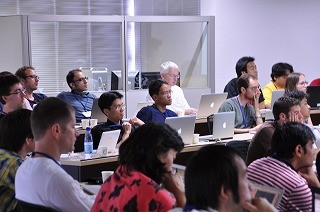
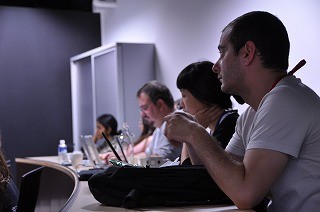
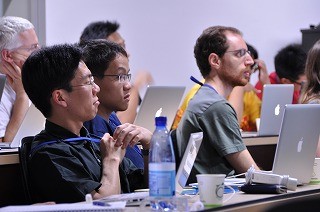
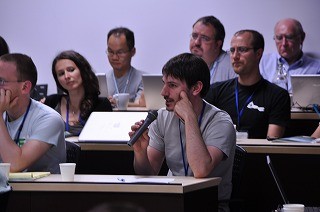
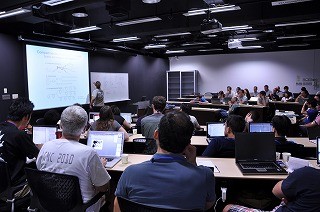
Specialty
Research Unit
For press enquiries:
Press Inquiry Form











